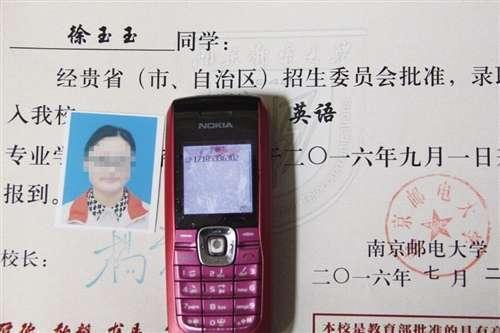The death of an 18-year-old soon-to-be college freshman has thrown a spotlight on a chronic problem in Chinese society—fraud.
Xu Yuyu came from a poor family in the coastal province of Shandong. Her mom was disabled, and her dad worked as a cement mason. In September she was supposed to be a student at the Nanjing University of Posts and Telecommunication, according to the Chinese news website Shandong 24 Hours.
On the afternoon on Aug. 19, Xu got a call from an unidentified person claiming to be from the educational bureau and offering her 2,260 yuan (about $390) in financial aid. Xu, having got a phone call a few days earlier from the educational bureau, didn’t suspect the call could be a scam.
After Xu followed the caller’s instructions and transferred a total of 9,900 yuan (about $1,486) to the caller’s account, he turned off his phone.
Later that night, Xu and her mom went to the police. On their way home, Xu collapsed on the tricycle that she and her mom were riding. She passed away two days later in the hospital.
“Our family is already not well off, how could there be people wanting to swindle me!” cried Xu before she passed away, according to her mom, Li Zhiyun. Doctors said Xu died because her heart and lungs abruptly stopped, but Li believes she died because her daughter was too hard on herself. She was healthy before she passed away.
Xu’s tragedy is in fact a reflection of an ongoing social problem in China. Personal information can be easily brought, partly because people have faced minimal punishment if they are caught. Only in November 2015 did China enact a criminal law for illegal disclosure of personal information, with a maximum punishment of seven years in prison in addition to a fine.






